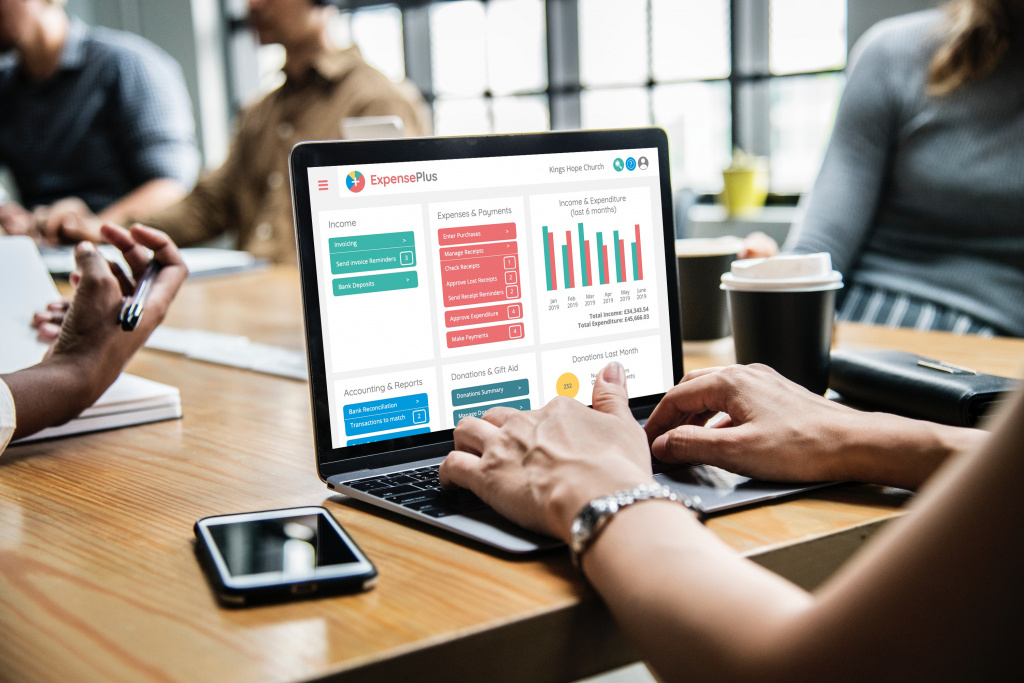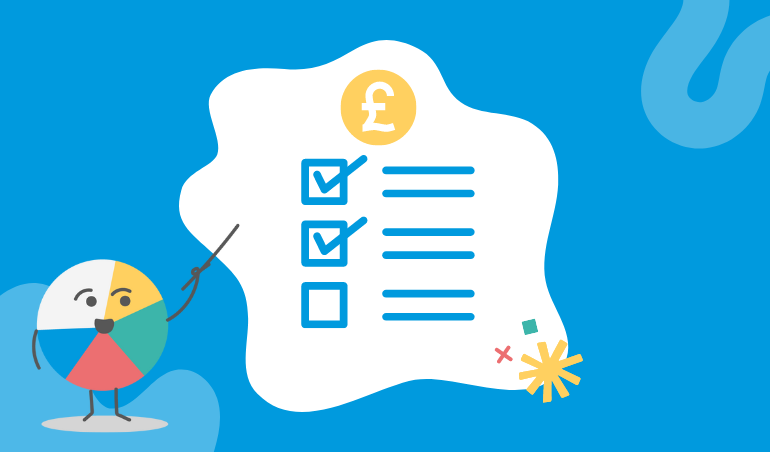One of the best ways to manage charity finances well is to have a checklist of tasks. This provides clarity as to which tasks your team needs to do, how frequently you need to perform them, and who will take responsibility for each task.
Whilst managing finances looks different for each church or charity, this article contains a template checklist. It aims to provide you with a starting point for creating your own financial task checklist.
Frequency of Tasks
Whilst you can action tasks, such as checking receipts or making payments immediately, it is best to perform these tasks weekly for efficiency. It’s important to get the balance right of how frequently to perform tasks.
For example, some churches and charities pay staff expenses monthly and encourage staff to submit expenses at the end of the month. However, this can have a number of drawbacks including:
- Poor visibility of expenditure until many weeks after the purchase. This is not helpful when it comes to wanting to view accurate financial reports.
- A higher number of lost receipts (due to the time lag).
- Staff missing the submission deadline and then need to wait an extra month to be paid back.
The frequency of tasks will depend on your organisation’s size, who is involved, operational need, and preference.
We hope the checklist at the bottom of this article will provide you with a useful starting point. Ultimately, you will need to decide what is best for your church or charity.
Allocation of Finance Tasks
As well as deciding which tasks you need to do and how frequently, you need to consider who will perform each task.
Traditionally, it would be the treasurer, bookkeeper or finance team’s job to perform all finance tasks. This would include processing payments, keying in data to create accounts, sending reports, answering queries and processing payroll.
Most churches and charities recognise that this isn’t an efficient way to manage financial tasks. You can now use cloud-based fund accounting packages such as ExpensePlus to streamline your financial processes. Digitalising tasks substantially increases efficiency!
A cloud-based software also means you can involve others in the finance process flow. Staff and volunteers can submit their own expenses and access live financial reports. Additionally, you can easily allocate financial tasks within the team.
Managing Finance Tasks
To efficiently manage financial tasks, some people use an online to-do-list such as Trello to create template task lists and manage weekly, monthly and year-end financial tasks. Some fund accounting packages like ExpensePlus also have an inbuilt task management feature. This allows you to create template task sets for repeated tasks and assign tasks to different users.
The example task lists below are just the basics. To create your own task lists for your church or charity, you may want to add to them or adapt them as you gain experience and train your team.
Key Finance Tasks
Weekly Finance Tasks / Ongoing
Recording Purchases – it’s best to do this immediately when someone makes a purchase or when receiving an invoice. Ideally, this should be a digital process streamlining your workflow as you avoid time-consuming filing of paperwork and keying in data.
Checking Receipts – typically one of the finance team does this weekly, but you can delegate this task. If you record purchases digitally, then checking receipts is really quick. You don’t even need to come into the office or file any paperwork!
Purchase Approvals – the budget holder of the category a purchase relates to should approve purchases. If you have a digital process flow they will be notified automatically, avoiding the need for paper or email approvals. Another key advantage of digital approvals is that budget holders can easily keep track of what has been spent from their budget in live-time.
Payments – the majority of churches and charities set up payments on a weekly basis. Typically someone on the finance team does this. Often a second person needs to authorise payments once they are set up (depending on your bank signing rules).
Customer Invoices – typically invoices for room hire, weddings etc., are raised as bookings are made. Usually, the same person who manages bookings creates the invoices. If you can raise invoices within your accounting software, you don’t need to key in data later to create accounts. It also makes it easier to track outstanding payments.
Bank Deposits – many organisations have moved away from cash and cheques. Where you receive cash and cheques, someone needs to count, record and deposit the money. Often organisations do this weekly but you can do this monthly where amounts are small.
Petty Cash – many organisations have stopped using petty cash. If you do have petty cash accounts, for example for a toddler group or a youth tuck shop, then it’s best to record income and expenditure into/out of a petty cash account straight away. Ideally, do this digitally so that you don’t need to key in data later to create accounts.
Monthly Finance Tasks
Bank Reconciliation – typically someone in the finance team does bank reconciliation monthly. Usually, this is at the start of each month to reconcile the prior month. However, larger organisations may do this weekly/fortnightly. A digital process flow for processing payments and creating customer invoices makes bank reconciliation super quick and simple, as there is no need to key in data to create accounts.
Petty Cash – if you use petty cash accounts, doing a monthly check ensures you have recorded petty cash transactions correctly. You should check that the money physically in your petty cash tins matches the recorded transactions. You can then investigate and correct any errors.
Gift Aid – you don’t need to claim Gift Aid monthly. However, if you use an accounting package that manages Gift Aid for you and integrates with HMRC, then submitting claims monthly means you receive repayments quicker. If you create accounts on an accruals basis you can also easily accrue for Gift Aid income.
Adjustments – where month-end adjustments are required, typically someone in the finance team does this. Adjustments may include fund or category transfers, and adding manual accruals and deferrals if you do accounts on an accruals basis.
Review Financial Reports – typically someone in the finance team does the review once the above monthly tasks are completed. Where additional adjustments are needed you can add these, and you can update any transactions that have been incorrectly coded.
Financial Updates – usually finance teams will send a short monthly finance summary to key leaders and trustees after you have reviewed the reports. Updates often include one or two key monthly financial reports. If you are using a fund accounting package that lets users view reports, you can include links rather than attachments. This allows your team to view up-to-date financial information themselves and drill in to view more details.
Process Payroll – you might manage payroll in-house (e.g. using software like BrightPay) or outsource payroll (e.g. to Stewardship who offer a brilliant outsourced payroll service). Either way, you will have some monthly payroll tasks to perform.
End of Year Tasks
In addition to the weekly and monthly tasks, at year-end you will need your own checklist for all the additional checks and other year-end tasks. These include capitalising assets and adding depreciation if you create accounts on an accruals basis.
In your year-end task list, you also want to consider what information your independent examiner will need. You can then put this information together and include tasks for the different reviews, signoffs and submissions.
Having a year-end task list will help you ensure:
- that key tasks don’t get missed,
- that you don’t fall behind schedule, and
- you can involve others in the process of creating year-end accounts.
Task Management in ExpensePlus
If you are using ExpensePlus to manage your church or charity finances, you can use the Task Management feature to:
- create weekly and monthly finance tasks,
- assign tasks to different individuals within your team, and
- keep track of progress.
You can manage day-to-day, recurring, ongoing and one-off tasks using template task sets. And the task management feature also provides a brilliant way to schedule, track and manage year-end tasks.
Everyone in your team who has access to the task management module can view tasks. Or you can set tasks to private so that only you can see them.

ExpensePlus is a cloud-based fund accounting software package designed for churches and charities. ExpensePlus makes managing fund accounts simple and straightforward. It’s used by hundreds of charities and churches across the UK and is rated 4.8 stars (out of 5) on Google with over 900 user reviews.







